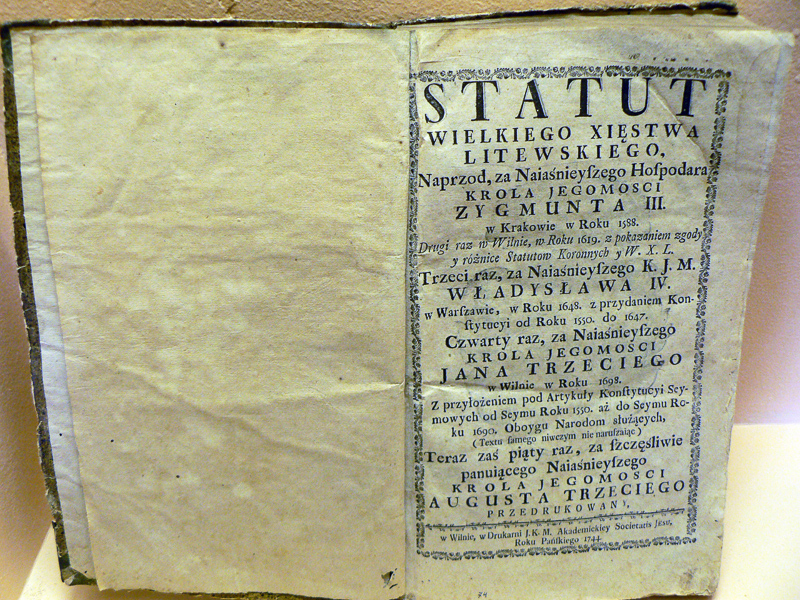Table of Contents
Introduction
Enacted laws, especially the modern acts and rules, are drafted by legal experts and it could be expected that the language used will leave little room for interpretation or construction. However, It is not necessary that the words used in a statute are always clear, explicit and unambiguous and thus, in such cases it is very essential for courts to determine a clear and explicit meaning of the words or phrases used by the legislature and at the same time remove all the doubts if any. Therefore, Interpretation Of Statutes becomes a necessary tool.
Meaning Of Interpretation Of Statutes
The term has been derived from the Latin term ‘interpretari’, which means to explain, expound, understand, or to translate. Thus, Interpretation is the process which is employed by the judiciary to ascertain or to determine the meaning of the statutes or legal provision.
The objective of the court is not only merely to read the law but is also to apply it in a meaningful manner to suit from case to case. It is also used for ascertaining the actual connotation of any Act or document with the actual intention of the legislature.
It is often referred to as the art of finding out the true sense of an enactment by giving the words of the enactment their natural and ordinary meaning.
Definitions By Jurists
According to Salmond: Interpretation and construction is the process by which the court seek to ascertain the meaning of the legislature through the medium of authoritative forms in which it is expressed.
According to Blackstone: The most fair and rational method for interpreting a statute is by exploring the intention of the legislature through texts, the subject matter, the effect and consequences or the spirit and reason of law.
According to Cooley– Interpretation is the art of finding out the true sense of any form of words and enabling others to derive from them the same meaning which the author intended to convey.
Objective Of Interpretation
When the language of the statute is clear, there is no need for the rules of interpretation. But, in certain cases, more than one meaning may be derived from the same word or sentence. It is, therefore, necessary to interpret the statute to find out the real intention of the statute. Also to determine the intention of the legislature conveyed expressly or impliedly in the language used.
In the process of interpretation, several aids are used. They may be statutory or non-statutory.
Statutory Aids may be illustrated by the General Clauses Act, 1897 and by specific definitions contained in individual Acts.
Non-statutory Aids are illustrated by common law rules of interpretation (including certain presumptions relating to interpretation) and also by case-laws relating to the interpretation of statutes.
Interpretation of Statutes is required for two basic reasons:-
Legislative Language – Legislative language may be complicated for a layman, and hence may require interpretation; and
Legislative Intent – The intention of the legislature or Legislative intent assimilates two aspects:
- The concept of ‘meaning’, i.e., what the word means; and
- The concept of ‘purpose’ and ‘object’ or the ‘reason’ or ‘spirit’ pervading through the statute.
Nature and Scope Of Interpretation Of Statutes
Necessity of interpretation would arise only where the language of a statutory provision is
“ambiguous, not clear or where two views are possible or where the provision gives a different meaning defeating the object of the statute.”
If the language is clear and unambiguous, no need for interpretation would arise.
In this regard, a Constitution Bench of five Judges of the Supreme Court in R.S. Nayak v A.R. Antulay, has held:
“If the words of the Statute are clear and unambiguous, it is the plainest duty of the Court to give effect to the natural meaning of the words used in the provision. The question of construction arises only in the event of an ambiguity or the plain meaning of the words used in the Statute would be self-defeating.”
Again Supreme Court in Grasim Industries Ltd. v Collector of Customs, Bombay, has followed the same principle and observed:
“Where the words are clear and there is no obscurity, and there is no ambiguity and the intention of the legislature is clearly conveyed, there is no scope for the court to take upon itself the task of amending or altering the statutory provisions.”
Thus the purpose of Interpretation of Statutes is to help the Judge to ascertain the intention of the Legislature – not to control that intention or to confine it within the limits, which the Judge may deem reasonable or expedient.
Importance of Interpretation in Legal Field
To prevent use of arbitrary powers
The words ‘owner or master’ as they occur in Section 1(2) of the Oil in Navigation Waters Act, 1955 were construed by the House of Lords to mean ‘owner and master’ making both of them guilty of the offence under that Section as reading of “or” as “or” would have produced as absurd result of leaving it to the Executive to select either the owner or master for being prosecuted without the Act giving any guidance. Such a result would have been against constitutional practice.
To ensure fulfillment of duties
The expression ‘established or incorporated’ used in University Grants Commission Act was read as ‘established and incorporated’ having regard to the constitutional scheme and in order to ensure that the Act is able to achieve its objectives and the University Grants Commission is able to perform its duties and responsibilities.
Negative and Positive Condition
A distinction may be made between positive and negative conditions prescribed by a Statute for acquiring a right or benefit. Positive conditions separated by “or” are read in the alternative but negative conditions connected by “or” are construed as cumulative and “or” is read as “nor” or “and”.
Prevention of Crime
In section 7 of the Official Secrets Act, 1920, which reads ‘Any person who attempts to commit any offence under the principal Act or this Act, or solicits or incites or endeavors to persuade another person to commit an offence, or aids or abets and does any act preparatory to the commission of an offence’, the word “and” printed in Italics was read as “or” for by reading “and” as “and” the result produced was unintelligible and absurd and against the clear intention of the Legislature. Thus even a person who does an act preparatory to the commission of an offence is equally liable.
Welfare of the Public
Section 3(b)(i) of the Drugs Act, 1940, (before its amendment in 1962 ) defined drug as follow: ‘All medicines for internal or external use of human beings or animals and all substances intended to be used for in the diagnosis, treatment, mitigation or prevention of disease in human beings or animals other than medicine and substances exclusively used or prepared for use in accordance with the Ayurvedic or Unani systems of medicine’. The Italicized word “and ” in this definition was read disjunctively as the context showed the word “or ” & and” reveals the clear intention of the Legislature.
Speedy Justice
In a case where the Government has been given special powers to create special courts, the words should be construed in such a manner, which ensures that effect is given to the reason for which power has been conferred on the Government.
Conclusion
In my opinion, the Judicature should expound the law in a manner that suppresses the evil and the wrong and advances the true meaning and scope of the Statute. The Legislature cannot predict the myriad possible future situations that might arise and it is impossible to draft a law perfect to meet all situations in future. This conflict is inevitable and thus it is the duty of the Judges to use the techniques of Interpretation to give the most desired and required meaning to ensure justice prevails.


